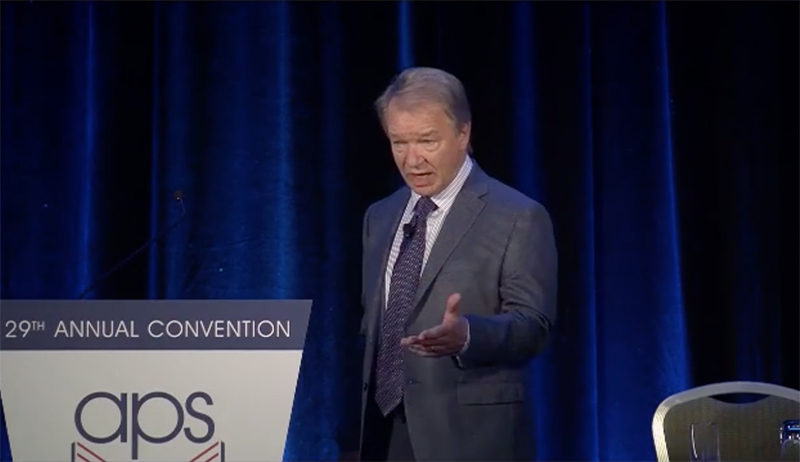
The APS James McKeen Cattell Fellow Award recognizes APS Members for a lifetime of outstanding contributions to the area of applied psychological research. Recipients research addresses a critical problem in society at large. Honorees are recognized annually at the APS Convention.
Cattell, an experimental psychologist, developed research techniques that allow for the study of groups of people and the individual differences among them. Cattell’s tasks demanded only easy, straightforward responses such as reacting rapidly to a light or sound and judging differences in weights, lengths of lines, or intervals of time. He coined the label “mental tests.”
“Gary Wells is recognized throughout the world for applying his pioneering research on eyewitness identification errors to preventing wrongful convictions. In 1978, he introduced an essential distinction between two types of variables that influence eyewitness accuracy: system variables that the justice system controls, and estimator variables that are circumstantial factors and cannot be controlled. In 1998, as forensic DNA testing started to uncover wrongful convictions of innocent people, Wells was asked by the U.S. Attorney General to join a Department of Justice working group of police, prosecutors, and eyewitness researchers.
More than anyone else, Wells has identified the problems with eyewitness identifications, laboratory paradigms, and possible solutions. He has worked tirelessly with practitioners and policy makers to effect reform. He has raised public awareness through various news media. The study of eyewitness identification represents some of the best application that psychology has to offer—and no one has shaped this area more than Gary Wells. As the leading theoretician, researcher, reform advocate, and spokesperson, Wells is synonymous with this science and all that it has accomplished.” -2017 APS Cattell Award
In an award address at the 2017 APS Annual Convention, APS James McKeen Cattell Fellow Gary L. Wells explained how much eyewitness identification stands to benefit from science, especially when it’s treated as a scientific endeavor. Psychological scientists know the perils of bypassing standardized procedures and the hazards of overlooking potential confounds. They understand that experimenters can introduce bias into various parts of the research process, often without being aware of it. And psychological studies repeatedly have shown that the limitations that apply to research in general apply to eyewitness identifications specifically.
Watch Video